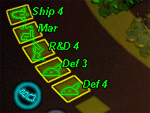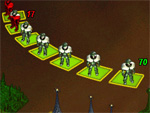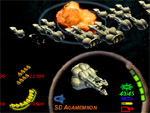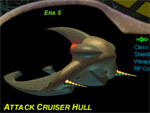The Geryk Analysis
|
 |
 |
 |
In Reach for the Stars, though, they’re toast. There actually is a long and complex backstory, but it got overwritten when they burned the actual game to the CD, so there’s really no way to access it while you’re playing. There’s no way to access it while you’re not playing, either, so in many ways it’s like a lot of cemeteries that you might find in Canada. That means that instead of having your misunderstanding of current events help you make sense of the game, you have to fall back on your ability to associate abstract concepts with mathematical relationships. Which formation works better against echelon: line or vanguard? But here’s the tricky part – which works better in space? I don’t think it’ll come as a surprise to many of you to learn that the answer is DGº = -RT ln k. That’s another way of saying it depends on which elf it is.
After all that, it will probably come as a shock to learn that the actual game mechanics of Reach for the Stars are far better designed that those in Alpha Centauri. In Alpha Centauri, you eventually have so many units and possible uses for them that successfully finishing the game is sometimes used as a clinical test for autism. Reach for the Stars, on the other hand, has a limited number of planet facilities, technologies, and things to do with them. The problem is that when you scale up a game like the original Reach for the Stars, you eventually cross the threshold between games that can essentially be represented by a single screen of data and thus don’t make you remember anything except that an asterisk looks more like a star than an X does, and games that have Arimech tentacles and as a result make you have to remember basically everything. Alpha Centauri made its equivalent of Arimech tentacles stuff that everyone knows intuitively, like that the U.N. can’t do anything right and that Sparta was the ancient land of Pericles. In Reach for the Stars, I can’t even see enemy fleets in transit, so if an opposing armada suddenly leaves its base planet, I have to actually write down what turn that was and then calculate all the possible places it could be in, say, three turns. If your game requires me to take notes while playing, you’ve failed in your attempt to make a computer game and have accidentally created homework. Since I can get homework for free, I’m statistically not all that likely to buy it in a box for $40. Likewise, if I have to use the tool-tips to remind me which picture of a spaceship is a battleship and which one is a troop transport, you’ve failed. Game over. And I don’t mean that as some kind of gamer trying to be hip by using cliché phrases from twenty years ago to up his street cred. I just mean it literally.
 |
 |
 |
When games had a playing field that could fit on a single screen, and your fleets were just numbers that moved from one capital letter to another, you were essentially just playing space chess. If you take the space chess but make the board ten times larger and throw in a lot more techs and environments and invisible fleets but don’t include any way to keep track of it, you have Reach for the Stars. It’s a shame, because parts of the game are just brilliant. But without a familiar scapegoat, The Nation isn’t going to take your Reach for the Stars article. Which means you won’t get paid. And since a man’s gotta eat, that pretty much seals it right there.